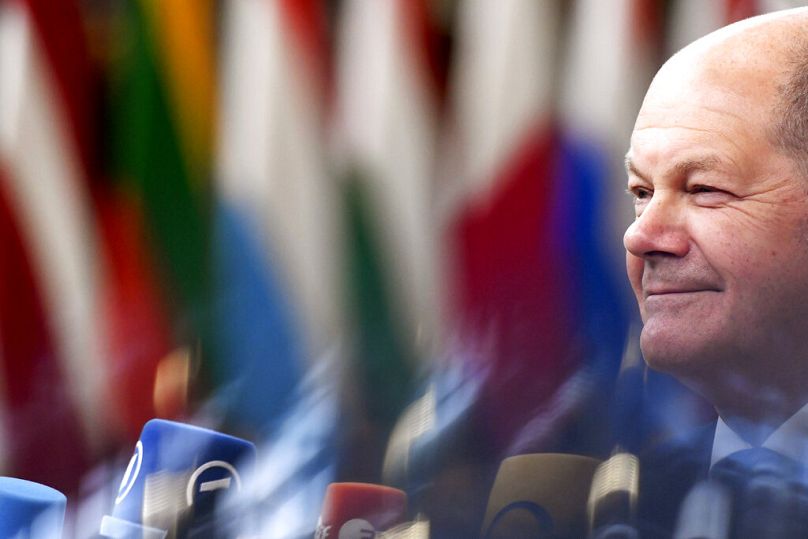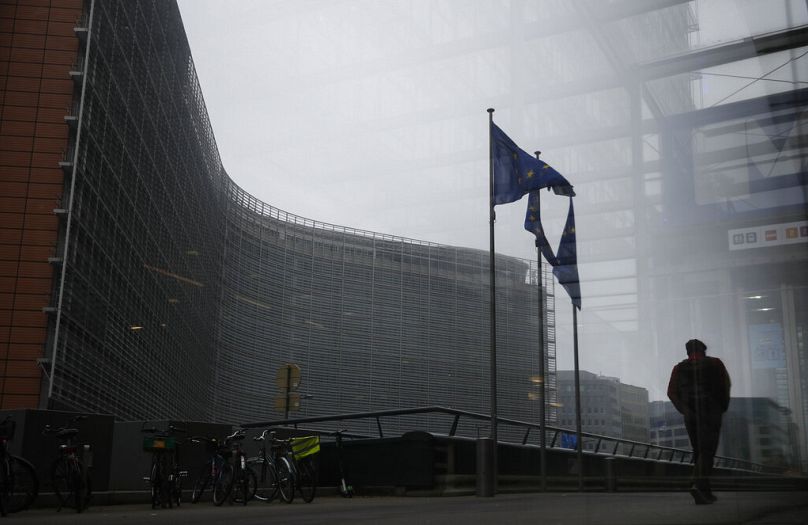Brussels wants to extend regulations that permit EU member states to subsidise energy prices. While the sentiment behind this is to be lauded, the reality is that interventionism will ultimately distort the natural behaviour of the EU market and undermine its very future, Szymon Kardaś writes.
While the cost of electricity in Europe has stabilised through 2023, the prospect of a new price hike remains high for many EU member states like Poland, Hungary, Czech Republic, Austria, Lithuania, Latvia and Romania.
 ADVERTISEMENT
ADVERTISEMENT
 ADVERTISEMENT
ADVERTISEMENT
A pan-European reliance on imports, together with rising energy demands, continues to threaten market stability.
Moreover, unit costs, while not fluctuating to the extremes of last winter, are still stubbornly high in many countries including Denmark, Italy and the Netherlands, as well as the EU’s leading economy, Germany.
To alleviate some of the risks posed to member states, the European Commission recently extended the use of supporting instruments first introduced in 2022. On 20 November, it agreed to extend several regulations by six months, including the Temporary Crisis and Transition Framework.
This will allow members to provide aid to national entities, should electricity prices exceed the levels before the energy crisis, and has been followed up with proposals that would extend other anti-crisis measures, such as gas solidarity measures, the Market Correction Mechanism and rules related to permit-granting for renewable energy projects, into next year.
Frustration with crisis solutions grows
This interventionalist approach has landed well in many member states, and, for some incumbent administrations, is being used for their political gain ahead of the European elections in May.
Last month, Germany's ruling coalition agreed on rules to provide aid to the energy-intensive industry; a programme set to run until 2028, with an estimated €28 billion budget.
Countries such as France and Poland are also among those in favour of maintaining subsidies, with the soon-to-be-formed Polish government announcing that they will maintain the electricity and gas price freeze for selected groups of consumers in 2024.
Beyond the protection of vulnerable groups of electricity consumers, one of the main arguments for maintaining the support measures is the fear of loss of competitiveness, and the risk that, due to high energy prices, European companies will consider migrating operations to the US or China.
Yet, in some EU countries, there is growing frustration at the continuance of crisis solutions, including Belgium, the Netherlands, Denmark, Estonia, and Finland, where politicians have pointed out that electricity prices have firmly stabilised over the year, and that maintaining special state aid rules is harmful to the EU market.
Subsidising favours the richer countries
While the risk of an increase in electricity prices in the EU over the next year exists, and the extension of some of the anti-crisis measures to 2024 seems fully justified, in the longer term, Brussels should be minded towards reducing the scope for subsidies. And there are several reasons for this.
First, subsidising electricity prices is extremely costly. According to the 2023 Report on Energy Subsidies, they have risen to €181bn across the EU in 2022 and could reach €194bn in 2023.
Second, maintaining the possibility of subsidising electricity prices in the long term might harm the EU energy market, deepening inequalities between member states, as a consequence of a subsidy race phenomenon, which disproportionately benefits richer countries.
This is well illustrated in the figures for 2022, which show that of the total amount of state aid approved by the EU, 53% went to Germany and 24% to France.
Divisions and headaches loom for 2024 and beyond if this behaviour becomes commonplace.
It also threatens the very existence of the European market, if the European Commission signals its intent to further extend certain anti-crisis regulations without proper appraisal.
The political leadership in Brussels should ensure they strictly assess the legitimacy of the provision of state aid in specific cases if interventionism is to persist in the short to medium term.
While, for member states, emphasis should turn to completing ongoing legislative amends to the electricity market design as soon as possible.
EU's energy mix has to grow stronger
European Commission President Ursula von der Leyen spelt out some of the reforms needed to provide resilience back in 2022.
The new electricity market design aims to create a more flexible, competitive, and consumer-friendly electricity market, better able to accommodate the growing share of renewables in the EU's energy mix.
It is now up to member states to close on the details of this proposal for legislative changes and bring forward regulations specifying, among other things, rules on investment for the expansion of generation capacity, such as renewable energy storage and nuclear power.
If they can do this, and veer away from subsidisation as a default response, there is an opportunity to stabilise electricity prices in Europe for the long term and reduce dependency on fossil fuels as primary sources of energy.
Such action, by members across the EU 27, would also encourage investment in Europe as a green energy global leader, and, importantly, provide underpinning to the EU and its ability to withstand future geopolitical shocks.
Szymon Kardaś is a senior policy fellow on energy within the European Power programme at the European Council on Foreign Relations (ECFR).
At Euronews, we believe all views matter. Contact us at view@euronews.com to send pitches or submissions and be part of the conversation.












